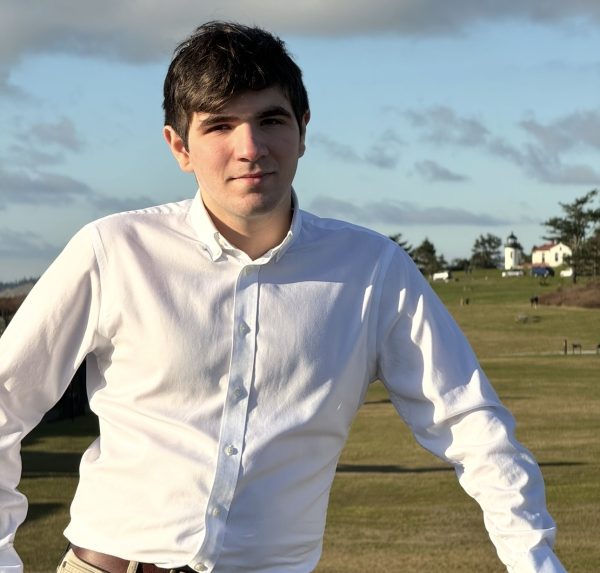On March 12, the St. Paul City Council unanimously voted to pass the “Advocating for a Green New Deal” Resolution. This resolution was created by Sunrise Twin Cities, the Macalester-based chapter of the Sunrise Movement, a youth-led political action organization advocating for legislation to combat the ongoing climate crisis.
St. Paul joins a list of cities including Seattle, Boston and Ithaca, N.Y. that have adopted a new climate framework based off of the Green New Deal.
The Green New Deal was a congressional resolution proposed in 2019 by U.S Rep. Alexandria Ocasio-Cortez and U.S. Sen. Edward Markey, that would push Congress to put limits on greenhouse gas emissions and create new jobs in renewable energy industries, as well as ensure access to clean water, clean air and healthy food. While the resolution failed to pass in Congress, organizations such as Sunrise have made it a priority to pass similar legislation through local, county and state legislatures.
In the non-binding resolution, St. Paul committed itself to “aligning city policies with the Green New Deal through both major and minor actions requir[ing] a transformative vision, urgency, radical action, an unwavering commitment to environmental justice, and a rejection of fossil fuels and harmful extraction.”
At the city council meeting, a group of Sunrise Twin Cities members stood in front of the seven city council members while they deliberated the resolution.
Speaking to the St. Paul City Council, Jesse Terry ’25, a Sunrise Twin Cities leader, said that the resolution provides the city with a “vision prioritiz[ing] environmental, economic and racial justice, demanding the energy transition also work[ing] to address the deep inequalities and oppression present in our country.”
Sunrise Twin Cities has spent over a year working with the city council to get a Green New Deal resolution passed. In 2023, the national Sunrise Movement launched an initiative for local chapters, known as hubs, to create Green New Deals for schools and communities.
During the 2023 St. Paul municipal elections, Sunrise Twin Cities endorsed candidates who pledged to commit to passing a Green New Deal resolution through the city council. Through campaigning, Sunrise Twin Cities became acquainted with city council members and local St. Paul residents who supported their cause.
“The Green New Deal has a reputation for being this scary lefty thing, but St. Paul is a pretty progressive area with a relatively progressive city council,” Terry said.
Once it became clear that there was enough public support for a Green New Deal in St. Paul, Sunrise Twin Cities began drafting their own Green New Deal resolution.
The initial resolution was modeled after other successful Green New Deal resolutions as well as a template for Green New Deal resolutions provided by Sunrise’s national branch, which contained specific policies that communities would enact.
“We sent [the resolution] to the city council last spring, and they sent it back with a lot of comments…as a resolution is non-binding and cannot have specific policy goals,” Sunrise Twin Cities leader Anneke Stracks ’26 said.
Sunrise worked with the offices of Ward 3 City Council member Saura Jost, whose constituency includes Macalester’s campus, and Ward 5 City Council member Hwa Jeong Kim. They helped to revise the resolution to center values that St. Paul should adopt instead of binding actions.
“Throughout the process, we were glad to maintain most of the original framework that we wanted,” Clara Brine ’28, Sunrise Twin Cities National Delegate, said. “We got feedback from Tom [Basgen], who’s a legislative [aide] for the city council, and he was giving us feedback on language.”
The initial 12-page resolution was ultimately revised down to three pages in which St. Paul acknowledges how climate change is impacting the city and the Earth, and recognizes the urgency to create new sustainable jobs and infrastructure.
During the resolution’s vote, city council members embraced Sunrise’s mission of making climate action a priority, and showed willingness to create legislation surrounding it.
“I believe that climate change is the biggest issue that we’re facing,” Jost said. “It is an issue that’s inescapable and something you see in your everyday lives. [It’s] not just about reducing greenhouse gas emissions … we’re going to be experiencing the impacts of climate change for the years to come, and [we’re asking] what can we do as a city to address that?”
The city council members acknowledged their appreciation for a group of youth and college students leading the fight to get the city council to act on the climate crisis and.
“[The feedback to the resolution has been] so inspiring, given that there’s so much conversation in my life about climate change,” Stellah Marienthal-LeGendre ’27, a member of Sunrise Twin Cities, said. “To have that motion [go] through in unison was so exciting … it was really a moment of the work and the time and the commitment by the city to do good work for the people.”
Despite the resolution’s positive reaction from the City Council, not all St. Paul residents are on board. In a recent op-ed in the Minnesota Star Tribune, conservative commentator Andy Brehm disagreed with the city council’s decision calling it “foolish” and stating the Green New Deal is a “senseless piece of legislation.”
“With all the troubles St. Paul is facing, why is the council distracting itself with meaningless political showboating,” Brehm wrote.
While Sunrise Twin Cities considers the passing of the Green New Deal resolution a victory, they are now focused on working with the City of St. Paul to enact specific eco-friendly policies. This includes Sunrise’s next goal of helping St. Paul update their Climate Action & Resilience Plan last published in 2019. The plan is renewed every five years with the next one slated for release this year.
“As we move forward, holding [the passing of the resolution] as the central dogma of the climate work that we’re doing feels pivotal,” Marienthal-LeGendre said. “It’ll give us grounding and establish[es] that we are a legitimate set of adults and want to do the work.”












